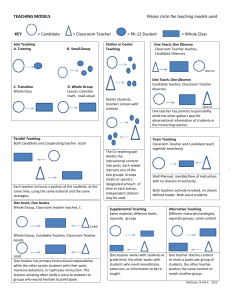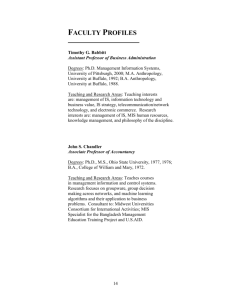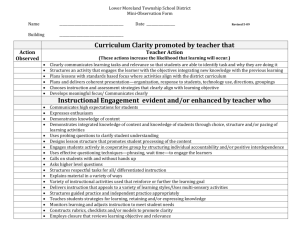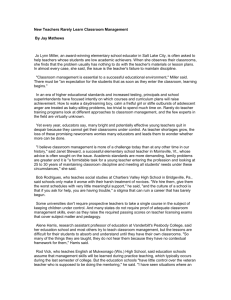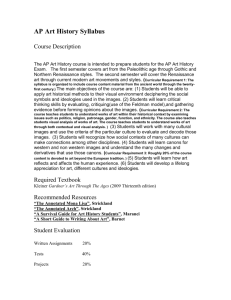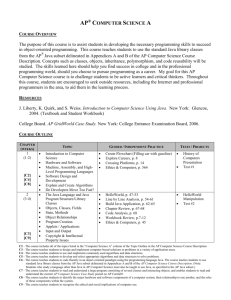HRCI Strategic Credit criteria.pages
advertisement
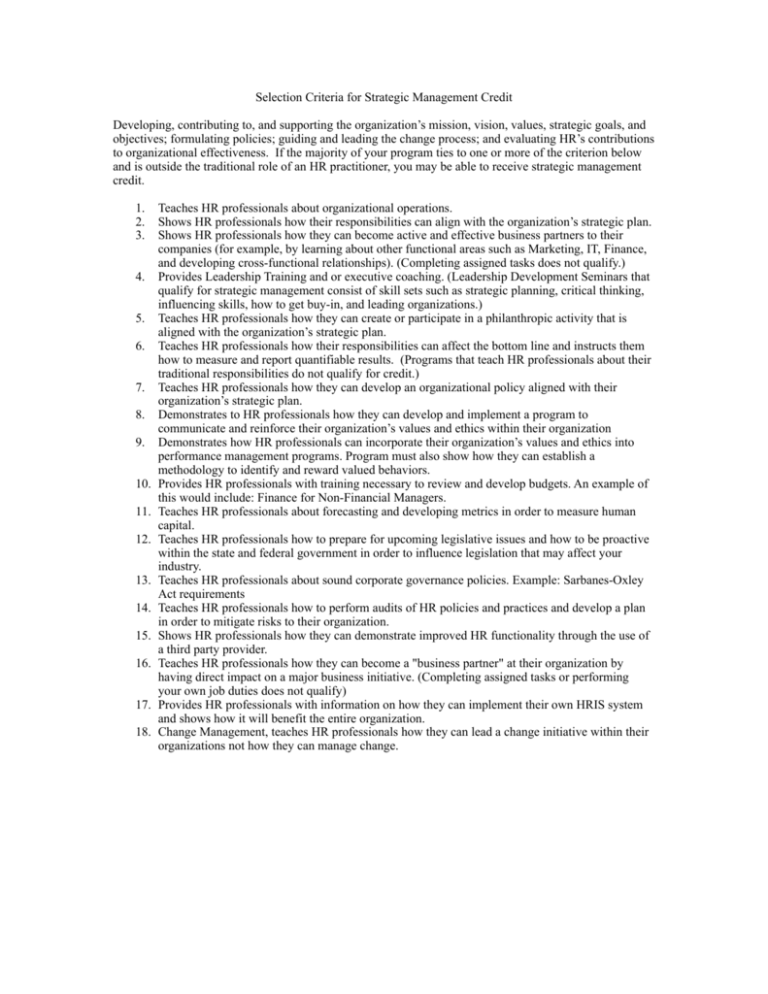
Selection Criteria for Strategic Management Credit Developing, contributing to, and supporting the organization’s mission, vision, values, strategic goals, and objectives; formulating policies; guiding and leading the change process; and evaluating HR’s contributions to organizational effectiveness. If the majority of your program ties to one or more of the criterion below and is outside the traditional role of an HR practitioner, you may be able to receive strategic management credit. 1. 2. 3. 4. 5. 6. 7. 8. 9. 10. 11. 12. 13. 14. 15. 16. 17. 18. Teaches HR professionals about organizational operations. Shows HR professionals how their responsibilities can align with the organization’s strategic plan. Shows HR professionals how they can become active and effective business partners to their companies (for example, by learning about other functional areas such as Marketing, IT, Finance, and developing cross-functional relationships). (Completing assigned tasks does not qualify.) Provides Leadership Training and or executive coaching. (Leadership Development Seminars that qualify for strategic management consist of skill sets such as strategic planning, critical thinking, influencing skills, how to get buy-in, and leading organizations.) Teaches HR professionals how they can create or participate in a philanthropic activity that is aligned with the organization’s strategic plan. Teaches HR professionals how their responsibilities can affect the bottom line and instructs them how to measure and report quantifiable results. (Programs that teach HR professionals about their traditional responsibilities do not qualify for credit.) Teaches HR professionals how they can develop an organizational policy aligned with their organization’s strategic plan. Demonstrates to HR professionals how they can develop and implement a program to communicate and reinforce their organization’s values and ethics within their organization Demonstrates how HR professionals can incorporate their organization’s values and ethics into performance management programs. Program must also show how they can establish a methodology to identify and reward valued behaviors. Provides HR professionals with training necessary to review and develop budgets. An example of this would include: Finance for Non-Financial Managers. Teaches HR professionals about forecasting and developing metrics in order to measure human capital. Teaches HR professionals how to prepare for upcoming legislative issues and how to be proactive within the state and federal government in order to influence legislation that may affect your industry. Teaches HR professionals about sound corporate governance policies. Example: Sarbanes-Oxley Act requirements Teaches HR professionals how to perform audits of HR policies and practices and develop a plan in order to mitigate risks to their organization. Shows HR professionals how they can demonstrate improved HR functionality through the use of a third party provider. Teaches HR professionals how they can become a "business partner" at their organization by having direct impact on a major business initiative. (Completing assigned tasks or performing your own job duties does not qualify) Provides HR professionals with information on how they can implement their own HRIS system and shows how it will benefit the entire organization. Change Management, teaches HR professionals how they can lead a change initiative within their organizations not how they can manage change.



